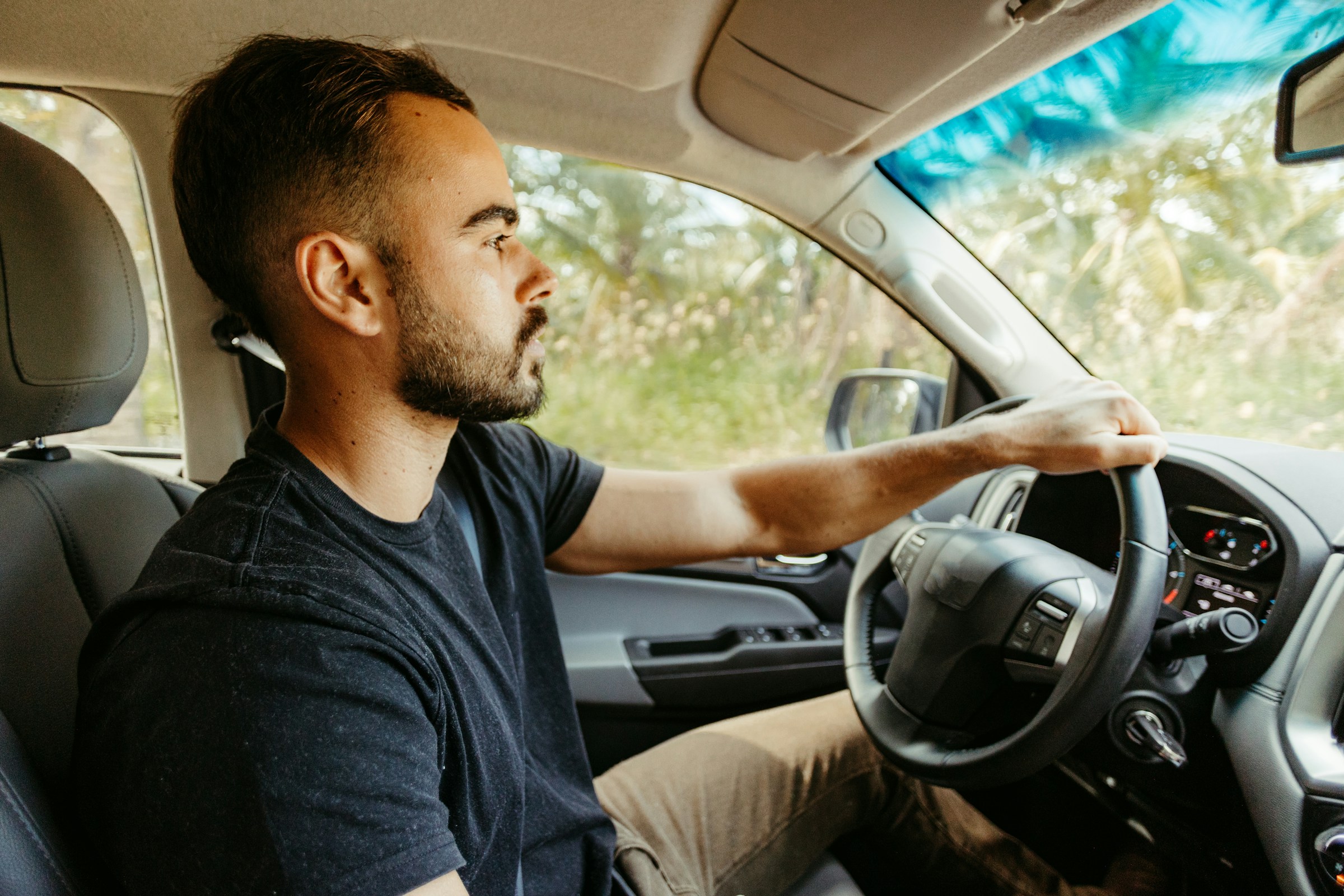Getting rear-ended is already stressful, but learning the other driver has no insurance can make things worse. Sadly, this happens every day, as many drivers still take the road without proper coverage.
Knowing your rights after a crash with an uninsured driver can help you avoid major financial setbacks. From medical bills to car repairs, being prepared helps you take control of the situation and recover with less stress.
This article breaks down what happens when you’re hit by an uninsured driver, what coverage may apply, and how to protect yourself legally and financially.


Understanding Uninsured Drivers
An uninsured driver is someone operating a vehicle without the legally required insurance, which puts everyone on the road at risk. In the event of a crash, these drivers have no financial backup to cover injuries, property damage, or legal costs.
While some avoid insurance due to affordability issues or lapses in payment, others may mistakenly think they’re covered under someone else’s policy when they’re not.
Driving without insurance is not only risky, it’s illegal in most states. Consequences can include fines, license suspension, and even jail time in serious cases. Despite these penalties, many still take the risk, leaving responsible drivers to deal with the financial fallout when an uninsured motorist causes an accident.
What to Do Immediately After the Accident
Your actions in the minutes following an accident with an uninsured driver can significantly impact your ability to recover damages later. Safety comes first, always.
Ensure Safety and Call for Help
Check yourself and any passengers for injuries immediately. If anyone needs medical attention, call 911 right away.
Even if injuries seem minor, adrenaline can mask pain and symptoms. Move your vehicle out of traffic if possible, but only if it’s safe to do so.
Document Everything at the Scene
Evidence collection becomes critical when dealing with uninsured drivers. Take these steps while the scene is fresh:
- Take photos of all vehicles involved, showing damage from multiple angles
- Capture the accident scene, including traffic signs, road conditions, and skid marks
- Get pictures of license plates and the other driver’s identification
- Photograph any insurance cards they claim to have, but verify coverage later
Thorough documentation can make or break your case when dealing with insurers or pursuing legal action.
Gather Contact Information
Collect contact information from the other driver, including their full name, phone number, address, and driver’s license number.
If they claim to have insurance, write down the company name and policy number, but don’t assume the coverage is valid or current.
Secure Witness Statements
Witness statements can prove invaluable later. Get names and contact information from anyone who saw the accident. Ask them to briefly describe what they witnessed, and consider recording their statements on your phone if they’re willing.
File a Police Report
Always file a police report, even for seemingly minor accidents. The responding officer will document the scene and may be able to verify insurance status on the spot.
This official report becomes crucial evidence if you need to pursue legal action later. Make sure to request the report number and information about how to obtain a copy.
How Being Hit by an Uninsured Driver Affects Your Claim
Finding out the other driver has no insurance changes how your claim works. Normally, you’d file with their insurance company to cover damage and injuries. But without that option, recovering your losses becomes harder.
Instead of a structured process through an insurer, you might have to seek payment directly from the driver, who likely can’t afford it.
In these cases, your own insurance becomes your main source of help, especially if you have uninsured motorist coverage.
Just keep in mind, using it might still impact your rates depending on your policy and where you live. It’s important to report the accident to your insurer right away. They can guide you on next steps and help confirm what’s covered under your policy.
Types of Coverage That Can Protect You
Smart drivers prepare for uninsured motorist scenarios by purchasing specific types of coverage designed for these exact situations.
Essential Coverage Types
Uninsured Motorist Coverage (UM) is your most important protection against uninsured drivers. This coverage pays for your medical expenses, lost wages, and other damages when an uninsured driver causes an accident.
Some states require UM coverage, while others make it optional. Coverage limits vary, but higher limits provide better protection.
Underinsured Motorist Coverage (UIM) protects you when the at-fault driver has some insurance, but not enough to cover your damages.
If their policy limit is $25,000 but your damages total $50,000, UIM coverage can bridge that gap. This coverage often pairs with UM coverage in a single policy endorsement.
Additional Protection Options
Personal Injury Protection (PIP) and Medical Payments (MedPay) help pay your costs no matter who caused the accident.
PIP covers medical bills, lost wages, and things like childcare. MedPay usually covers only medical bills but pays right away, without waiting to decide who’s at fault.
These coverages work with your uninsured motorist (UM) insurance. UM covers damages from an uninsured driver, while PIP or MedPay helps with immediate medical costs.
Knowing how they work together helps you avoid gaps and get the most support. To make sure you’re fully protected and to get help navigating your options after an accident, consult a personal injury attorney who can guide you through the process.


Legal Options When Hit by an Uninsured Driver
You have several legal avenues available when an uninsured driver causes your accident, each with distinct advantages and challenges.
Working With Your Insurance Company
Filing a claim with your own insurance company is usually your first and best option. If you have UM coverage, your insurer steps into the shoes of the missing insurance company.
They’ll investigate the claim, determine fault, and pay valid damages up to your policy limits. This process feels familiar because you’re dealing with your own insurance company using established procedures.
Direct Legal Action and Alternative Solutions
You can sue an uninsured driver directly, but it’s often not worth it. Even if you win, you may not get paid if the driver has no money or assets, and legal fees can add up fast. A court judgment doesn’t help much if there’s nothing to collect.
Some drivers may offer to pay through a lump sum or payment plan. This can work, but always get it in writing and talk to a lawyer first.
If you’re unsure how to proceed or want to explore your legal options, having the right legal team can make all the difference.
DiBella Law Injury and Accident Lawyers, a top-rated Boston car accident attorney, offers a free consultation to help you understand your rights and next steps.
Final Thoughts
Getting hit by an uninsured driver can be tough, but it doesn’t have to ruin your finances if you’re prepared. The key is understanding your insurance coverage, taking the right steps after an accident, and making sure your policy fits your needs.
This is especially important because one in eight drivers doesn’t have insurance. That’s why having enough uninsured motorist (UM) coverage matters.
Take a moment to review your policy, consider raising your limits, and make sure you fully understand your protection. That way, if the unexpected happens, you’ll be ready to recover with confidence.
Article Last Updated: May 26, 2025.


